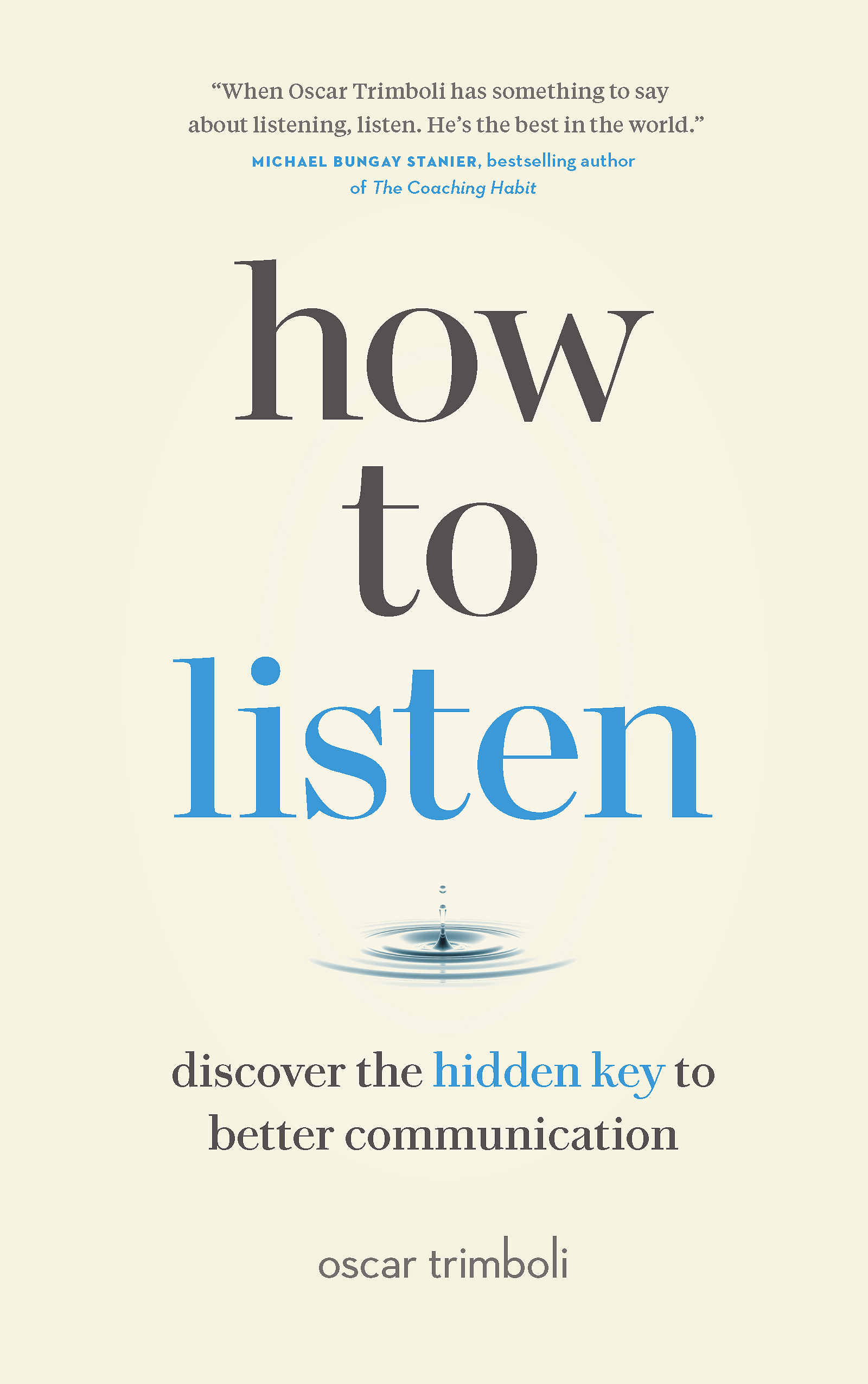The Mediaweek Academy will host its fourth session, which will explore listening skills.
MFA Hall of Famer and Mediaweek contributing editor Greg’ Sparrow’ Graham will lead the session, featuring a Legend of the industry sharing their career development wisdom and a Superstar discussing their insights.
This month’s Mediaweek Academy Legend is the author of How to Listen, Oscar Trimboli, with Superstar speaker Chloe Hooper, the founder of Bare Feat.
Trimboli spoke to Mediaweek about how he got his start in the media industry, the importance of deep listening, and his surprising advice to people early in their marketing careers.
Trimboli reveals his career’s humble beginnings
Trimboli shared that his career began during his school holidays as an unpaid 8-year-old intern working with his father, a concreter, on construction sites.
“The work site was a range of migrants from Argentina, Brazil, Chile, Greece, Italy, Poland, Spain, Vietnam and. Yugoslavia.
“My work included buying lunches for them and occasionally keeping the change. I had to clean tools and formwork.”
Trimboli said he continued working on those construction sites during his school and university holidays; working with them taught him important career values.
“They taught me the importance of your work ethic, teamwork with a diverse range of people, age groups, and cultural backgrounds, and the value of listening to body language.”
The importance of different listening styles and developing deep listening skills
Trimboli noted that communication is 50% speaking and 50% listening.
“The more senior you are, the more complex the problems you are working on, and the more constrained your resources are, all amplify the importance of listening – not just to what is said, equally noticing what is NOT said.”
Trimboli explained that mistakes and misunderstandings occur when people aren’t listening in one-to-one or group meetings, which is exacerbated in audio and videoconference environments.
Trimboli highlighted that people have different listening styles; some listen first with their ears and then with their eyes; others listen first with their eyes and then with their ears.
“If you want to discover which one you are – close your eyes during a group video conference conversation for 3 minutes and notice if it’s frustrating or liberating.
“If you struggle with your eyes closed, your listening preference is primarily visual. On the other hand, if you hear more nuance in the discussion with your eyes closed, your preference is likely to be an auditory listener,” he said.
“This is why some people struggle more with video conference environments than face-to-face meetings,” he added.
Trimboli noted that listening well will shorten meetings and reduce the effort and re-work everyone in the meeting will need to do.
Trimboli’s surprising career advice
The consensus by legends and veterans of the industry to those early on in their careers is to find mentor. But for Trimboli, he said: “Do NOT get A Mentor.”
“Get at least four mentors who can help with different perspectives. In Janine Garner’s book, It’s who you know, she talks about four distinct roles to support your career:
1. Promoter – makes noise about potential possibilities and inspires you to dream big.
2. Pit Crew – keeps you on track, nurtures you and prevents untoward emotions from getting the better of you.
3. Teacher –helps you develop knowledge, wisdom and foresight.
4. Butt-kicker –accelerates your journey, pushes you to do more and holds you accountable.
“I would add to this, if your mentors are all from inside your industry, you need to rethink your mentor mix,” Trimboli added.
The key to having and developing listening skills
When it comes to having and developing listening skills, Trimboli noted: “Listening starts with you.”
“You can’t listen to others if you have lots of browser tabs in your mind chewing up your working memory,” he said.
Trimboli explained that the myth of workplace multitasking could make it more difficult.
“You can multitask for routine and predictable tasks. You can only task switch for complex, collaborative, and constrained conversations with others at work.
“The price you pay for task switching is confusion, conflict, misunderstanding, and ultimately needing to redo the work or asking your client, co-worker or leader to re-explain what you missed while reading a WhatsApp message,” he said.
“Listening happens before the conversation. Give yourself a fighting chance to listen,” he added.
Trimboli also shared five-pointers on developing listening skills:
1. Notice what colour your listening battery is before the conversation. Reschedule if it’s red or touching black.
2. Manage your notifications.
3. Drink a glass of water before and during the conversation.
4. When you get distracted, take a deep breath and sip of water.
5. Take graphical or visual notes that you will understand rather than attempt to capture verbatim notes.
–
Top image: Mediaweek Academy Legend Oscar Trimboli

